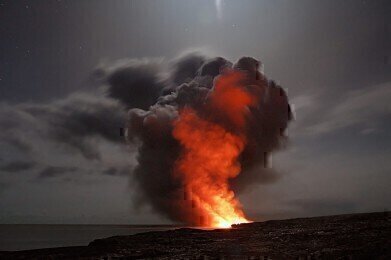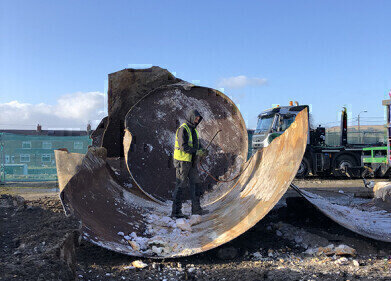Soil Remediation
How Does War Impact the Environment?
Dec 27 2015
They say that all is fair in love and war. Standards of human decency undoubtedly fall or vanish completely during wartime – acts that would normally be considered as terribly immoral suddenly become acceptable and even commonplace. Whilst the spotlight regarding this degradation of values normally focuses on the human issue, the damage being done to our environment is often neglected.
Even in the relatively peaceful era in which the majority of the world has been residing for the last few decades, the Institute of Economics and Peace concludes that there are still only 11 countries worldwide not involved in a current conflict. The huge environmental impact that such conflict – or indeed maintaining a standing army during peacetime – engenders should not be underestimated or overlooked.
Fossil Fuel Consumption
In 2007, the US Department for Defense used up almost 21 billion litres of fuel on an annual basis. As the country’s largest consumer of fossil fuels, the military’s carbon emissions were comparable to that of an entire nation of modest size in Europe, such as Denmark. And that’s during peacetime!
A report by USA Today found that the US army used as much as 191 litres of oil on a daily basis during its invasion of Iraq. Incredibly, almost two-thirds of this was simply being used in delivering more fuel to the frontline troops so that they could further their attacks.
Residual Contamination
During the Iraqi invasion which preceded the most recent one (the 1991 Gulf War), the US and UK navies dropped 340 tonnes of bombs and missiles, containing depleted uranium reserves, on the nation of Iraq. As well as hamstringing the country’s entire infrastructure and preventing aid from being delivered to where it was needed, the bombing campaign may have had a more long-term effect.
It’s believed by some quarters that the uranium in the bombs infiltrated Iraqi water supplies and soil, turning them carcinogenic. While the UK government has refuted the claims, no conclusive study has been conducted to disprove such theories. Despite the fact that innovative solutions to disposing of hazardous waste do exist, they are a little trickier to implement when the waste is a result of a massive bombing campaign – especially when those in a position to do something about the problem refuse to acknowledge one exists at all.
Threat to Flora and Fauna
“War is bad for wildlife in as many ways as for people,” explains Ian Redmond, a wildlife expert for Born Free. “Conservation suffers because rangers often have to flee the fighting, and may be attacked because rebel armies covet their vehicles, radios and guns. Moreover, rebels often feed their troops on bushmeat and finance their ops with ivory, timber, charcoal and minerals from protected areas.”
Evidence of such environmental devastation can be seen across all nations who have sustained extended periods of warfare in recent memory. For example, Afghanistan plays home to 85% less migratory birds than before the conflict there. Meanwhile, the militarisation of the Democratic Republic of Congo (formerly Zaire) led to the near annihilation of the hippopotamus population in two of the country’s most important rivers in just two months in 2016.
Clearly, warfare does not just endanger those involved in it, but can hold grave implications for future generations, for animal life and for the planet in general.
Events
Apr 22 2024 Hannover, Germany
Apr 23 2024 Kuala Lumpur, Malaysia
Apr 24 2024 Sao Paulo, Brasil
May 05 2024 Seville, Spain
May 13 2024 Munich, Germany













